★★★
“Chase what matters.”
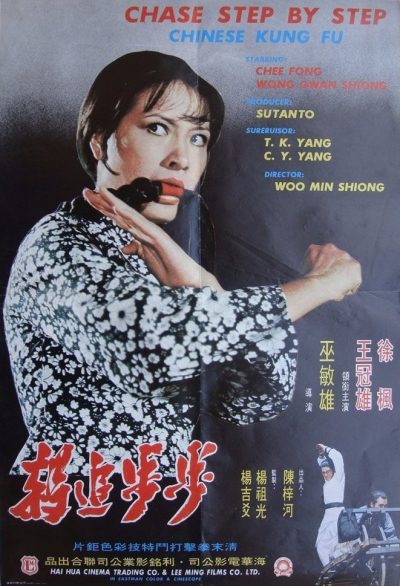 A solid if unremarkable Taiwanese kung-fu film, it’s set in 1887 and focuses on a mission to deliver a thousand taels of gold, which are intended for use in drought relief by another province. (Presumably) To avoid attracting unwanted attention, the delivery is kept very low-key. In fact, only two people are assigned as security for the gold: circus acrobats Lin Ying (Hsu) and Sao Wu (Chow). However, word apparently leaks out, and on their journey, they’re almost perpetually under attack.
A solid if unremarkable Taiwanese kung-fu film, it’s set in 1887 and focuses on a mission to deliver a thousand taels of gold, which are intended for use in drought relief by another province. (Presumably) To avoid attracting unwanted attention, the delivery is kept very low-key. In fact, only two people are assigned as security for the gold: circus acrobats Lin Ying (Hsu) and Sao Wu (Chow). However, word apparently leaks out, and on their journey, they’re almost perpetually under attack.
These attempts range from the straightforward – two guys they meet at a rest-stop try and run off with their cart – to the more subtle. The wife of an inn-keeper attempts to seduce Sao, for example. Or in the most complex, an incident is staged in which our hero and heroine rescue a young girl. She then invites him to dinner, gets him drunk and… Step 2. ? Step 3. PROFIT. Yeah, it’s a bit vague, since it’s not as if Sao is carrying the thousand taels of cold on him. Anyway, even when they reach their destination, the relief aid isn’t safe, since there are greedy local eyes, intent on diverting it into private hands.
It’s very much a two-hander, with Lin and Sao portrayed as equals, though the poster would indicate Hsu is the star (she’d go on to become a successful producer, including on the Oscar-nominated Farewell My Concubine). Less clear is quite what the relationship is between the pair: Sao seems to take the lead, but Lin is the smarter, and has to rescue her colleague more than once, in part due to his eye for the ladies. Fight-wise, Chow is the better: he gets the final battle against the man bad guy, while Hsu is battling the two minions who are absconding with the gold.
It’s a bit of a shame they don’t make more of the pair’s supposed circus and acrobatic background. This is the focus of the scene behind the opening credits (though quite what the dog tricks have to do with it, I’m uncertain!), then only intermittently references these skills thereafter. There’s a scene where the two have to escape by crossing a chasm on a tightrope, pushing a hand-cart, and a rather cool scene where Sao fights the bad guys while on a pair of impromptu stilts. That’s about it.
Lin does get the movie’s most memorable moment, however. Her opponent hurls a knife as she’s on the ground, which pins down her pigtail. With one flick of her head, she returns it to him, burying it in his chest. [Here’s the animated GIF] They say there’s nothing new under the sun: that kind of lethal hair-fu shows they’re wrong. In comparison, the rest of the film is not as memorable, and offers hardly much in the way of an inventive story-line. Yet it proceeds at a decent enough pace to sustain interest, and Hsu’s facial expressions sell her talents well – perhaps better than her talents do.
Dir: Yu Min Sheong
Star: Hsu Feng, Chow Chung-lim, Ma Cheung, Nam Wan





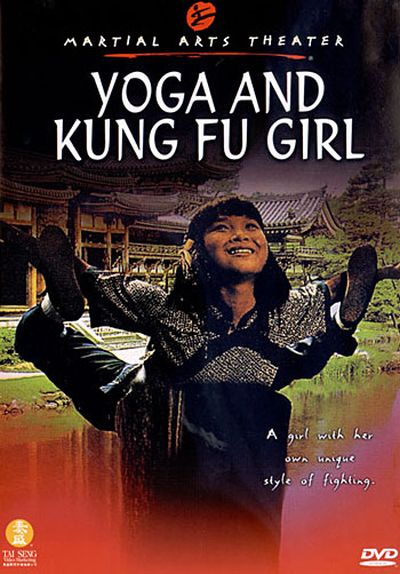 I’m trying to figure out if the “the” in the IMDb title used here is superfluous. “Yoga and Kung-fu Girl,” as on the DVD sleeve would make more sense, given the heroine’s martial arts are a combination of traditional skills with extreme flexibility. In some ways, it’s a slightly less exploitative version of things like The Crippled Masters, with its amputee-fu. The heroine here, Phoenix, could similarly make a living as a carnival exhibit, given her contortionist abilities, which are here shoe-horned into use to provide a style of fighting. To say this works with variable success would be an understatement. There are moments when her talents and flexibility are genuinely impressive. However, there are others where her limitations and lack of training are painfully apparent.
I’m trying to figure out if the “the” in the IMDb title used here is superfluous. “Yoga and Kung-fu Girl,” as on the DVD sleeve would make more sense, given the heroine’s martial arts are a combination of traditional skills with extreme flexibility. In some ways, it’s a slightly less exploitative version of things like The Crippled Masters, with its amputee-fu. The heroine here, Phoenix, could similarly make a living as a carnival exhibit, given her contortionist abilities, which are here shoe-horned into use to provide a style of fighting. To say this works with variable success would be an understatement. There are moments when her talents and flexibility are genuinely impressive. However, there are others where her limitations and lack of training are painfully apparent.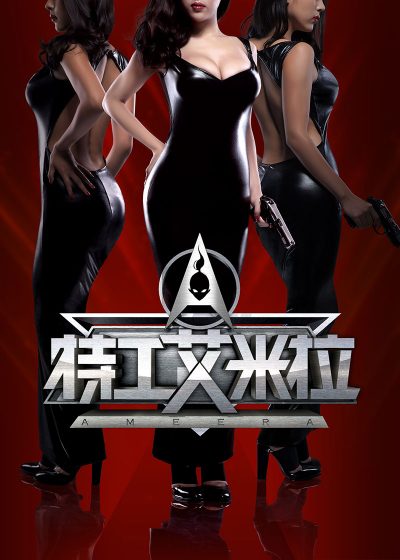 I should probably have learned from my first experience with Ms. Hu: the thoroughly mediocre jungle ensemble piece which was
I should probably have learned from my first experience with Ms. Hu: the thoroughly mediocre jungle ensemble piece which was  The elevator pitch version of this sounds like a million other kung-fu films: Shen Ping Hong (Li) seeks revenge on the people who killed her parents and left her crippled. But there’s rather more going on beneath the surface, and shades of grey on both sides. One of her targets, Lord Kao Hung, regrets what happened and wants to help Shen regain the use of her legs. But Shen only agrees to let his son Tien-Ying (Yueh) help, in the belief that it will make her mission of vengeance easier. It feels almost like she’s a mad dog, lashing out at anyone who tries to help; keeping the severed heads of her victims in jars is a clue there. Meanwhile, Kao’s associates – and Tien-Ying’s ex-girlfriend (Chiao) – think he’s helping because he wants to get Shen’s jade sword for his own ends, and are intent on getting their revenge in on her first.
The elevator pitch version of this sounds like a million other kung-fu films: Shen Ping Hong (Li) seeks revenge on the people who killed her parents and left her crippled. But there’s rather more going on beneath the surface, and shades of grey on both sides. One of her targets, Lord Kao Hung, regrets what happened and wants to help Shen regain the use of her legs. But Shen only agrees to let his son Tien-Ying (Yueh) help, in the belief that it will make her mission of vengeance easier. It feels almost like she’s a mad dog, lashing out at anyone who tries to help; keeping the severed heads of her victims in jars is a clue there. Meanwhile, Kao’s associates – and Tien-Ying’s ex-girlfriend (Chiao) – think he’s helping because he wants to get Shen’s jade sword for his own ends, and are intent on getting their revenge in on her first. After reading some particularly scathing reviews of this, e.g. “stunningly atrocious”, I was braced for something
After reading some particularly scathing reviews of this, e.g. “stunningly atrocious”, I was braced for something 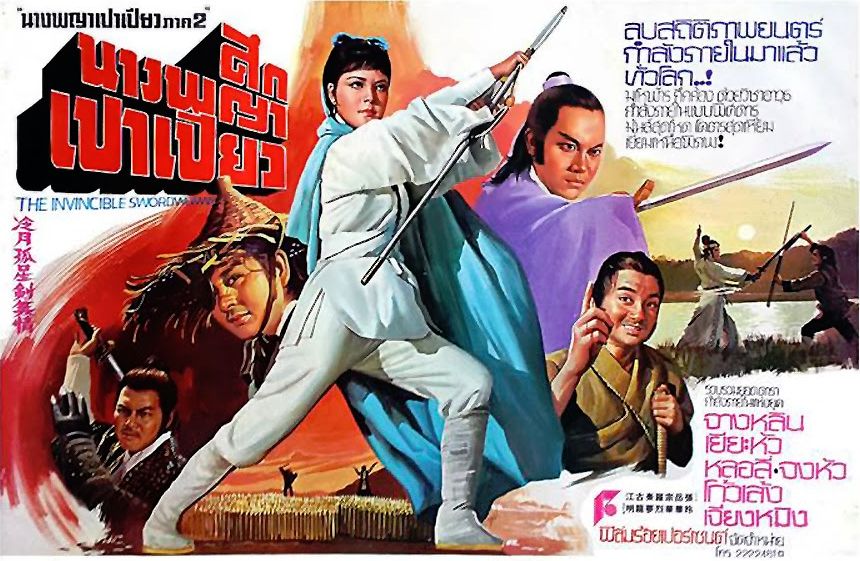 We’ve previously written about Pearl Ling Chang’s mad
We’ve previously written about Pearl Ling Chang’s mad 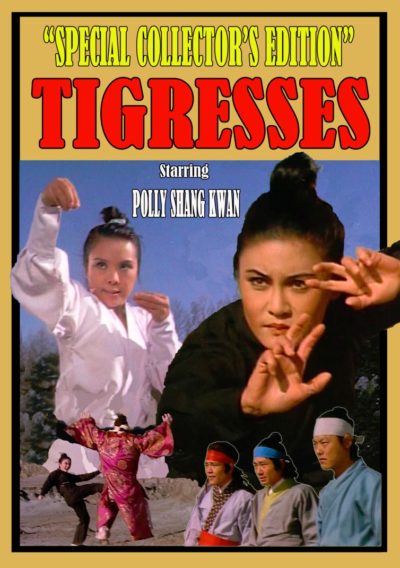 After their parents are killed by Ji-Gyeum Yoon (Kim Y-i), who wants to take over their father Sung’s position, sisters Su-Yung and An-Yung are split up and sent off for their safely, each owning half of a jade pendant. Fifteen years later, An-Yung (Shang Kwan) begins to take her vengeance on the usurper – not just physically, but also waging psychological warfare, sending him notes to ensure he knows he is being targeted, although not initially why or who. Though I’m a little surprised Yoon doesn’t figure it out immediately, given he’s still so paranoid about Sung’s daughters coming out, he freaks out when left alone with a maid, stating the position given in the tag-line above.
After their parents are killed by Ji-Gyeum Yoon (Kim Y-i), who wants to take over their father Sung’s position, sisters Su-Yung and An-Yung are split up and sent off for their safely, each owning half of a jade pendant. Fifteen years later, An-Yung (Shang Kwan) begins to take her vengeance on the usurper – not just physically, but also waging psychological warfare, sending him notes to ensure he knows he is being targeted, although not initially why or who. Though I’m a little surprised Yoon doesn’t figure it out immediately, given he’s still so paranoid about Sung’s daughters coming out, he freaks out when left alone with a maid, stating the position given in the tag-line above.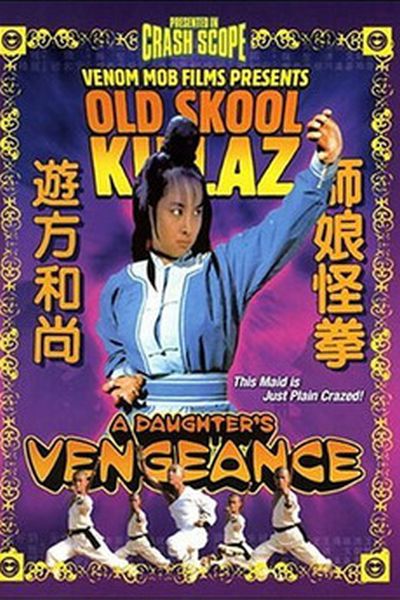 Look, I tried. I really did. When I found my attention had drifted away from watching the film, in good faith, I rewound the film to the point where I’d lost interest, and took up the movie again the following day. After all, maybe it was me. But when I still could barely bring myself to finish this leaden lump of poorly-crafted revenge-fu… No, having gone above and beyond the required effort, it’s really not me. This is lacklustre stuff, to put it mildly, even by the generally low standards of Taiwan.
Look, I tried. I really did. When I found my attention had drifted away from watching the film, in good faith, I rewound the film to the point where I’d lost interest, and took up the movie again the following day. After all, maybe it was me. But when I still could barely bring myself to finish this leaden lump of poorly-crafted revenge-fu… No, having gone above and beyond the required effort, it’s really not me. This is lacklustre stuff, to put it mildly, even by the generally low standards of Taiwan.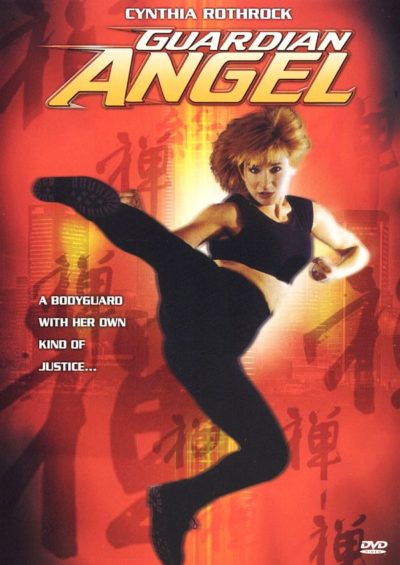 To explain the above, there are significant chunks of this which are terrible: make no sense, or are flat-out dumb. Its depiction of policing, in particular, is awful. Apparently, if you’re on a stakeout and a deal between two gangs has turned into a Mexican standoff, the best way to defuse the situation is to run downhill towards them, firing your gun in the air – and not bothering, at any point, to identif yourself as a law enforcement officer. I laughed like a drain at that, and there are innumerable other moments of such character stupidity or cinematic incompetence. Yet, none of that stopped me from being adequately entertained.
To explain the above, there are significant chunks of this which are terrible: make no sense, or are flat-out dumb. Its depiction of policing, in particular, is awful. Apparently, if you’re on a stakeout and a deal between two gangs has turned into a Mexican standoff, the best way to defuse the situation is to run downhill towards them, firing your gun in the air – and not bothering, at any point, to identif yourself as a law enforcement officer. I laughed like a drain at that, and there are innumerable other moments of such character stupidity or cinematic incompetence. Yet, none of that stopped me from being adequately entertained. That’s the voice-over with which this starts, segueing into a bit of nude interpretive dance – well, semi-nude, the guy keeps his Y-fronts on, for which I am grateful – that has absolutely no relation to the rest of the film. At its core, this is a battle of triad versus triad: one overseen by Lau, the other by Fung. The former is assassinated, and his daughter, Angel (Yeung) takes over – she’s also keen to track down the perpetrators, with the most obvious beneficiary being Fung. But not so sure is Fung’s right-hand man, Jimmy Lee (Lee), who was there for the killing, and helps Angel’s investigation.
That’s the voice-over with which this starts, segueing into a bit of nude interpretive dance – well, semi-nude, the guy keeps his Y-fronts on, for which I am grateful – that has absolutely no relation to the rest of the film. At its core, this is a battle of triad versus triad: one overseen by Lau, the other by Fung. The former is assassinated, and his daughter, Angel (Yeung) takes over – she’s also keen to track down the perpetrators, with the most obvious beneficiary being Fung. But not so sure is Fung’s right-hand man, Jimmy Lee (Lee), who was there for the killing, and helps Angel’s investigation.